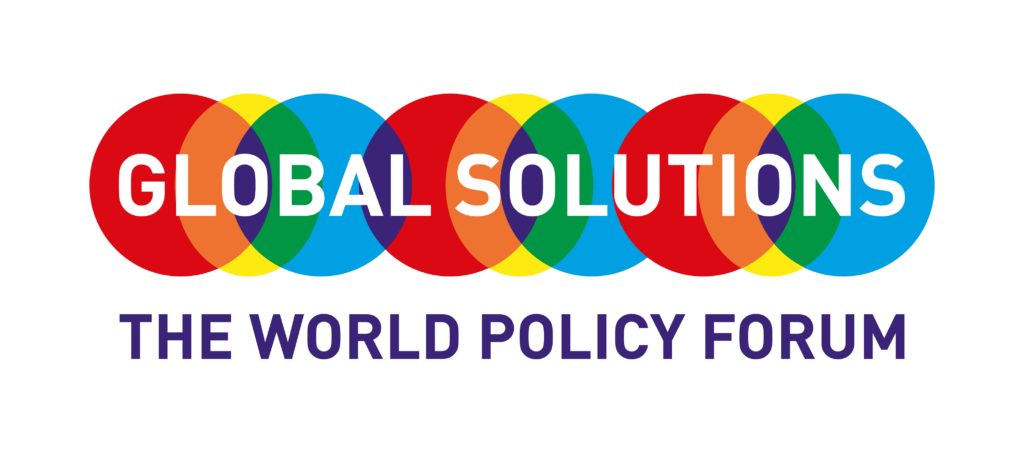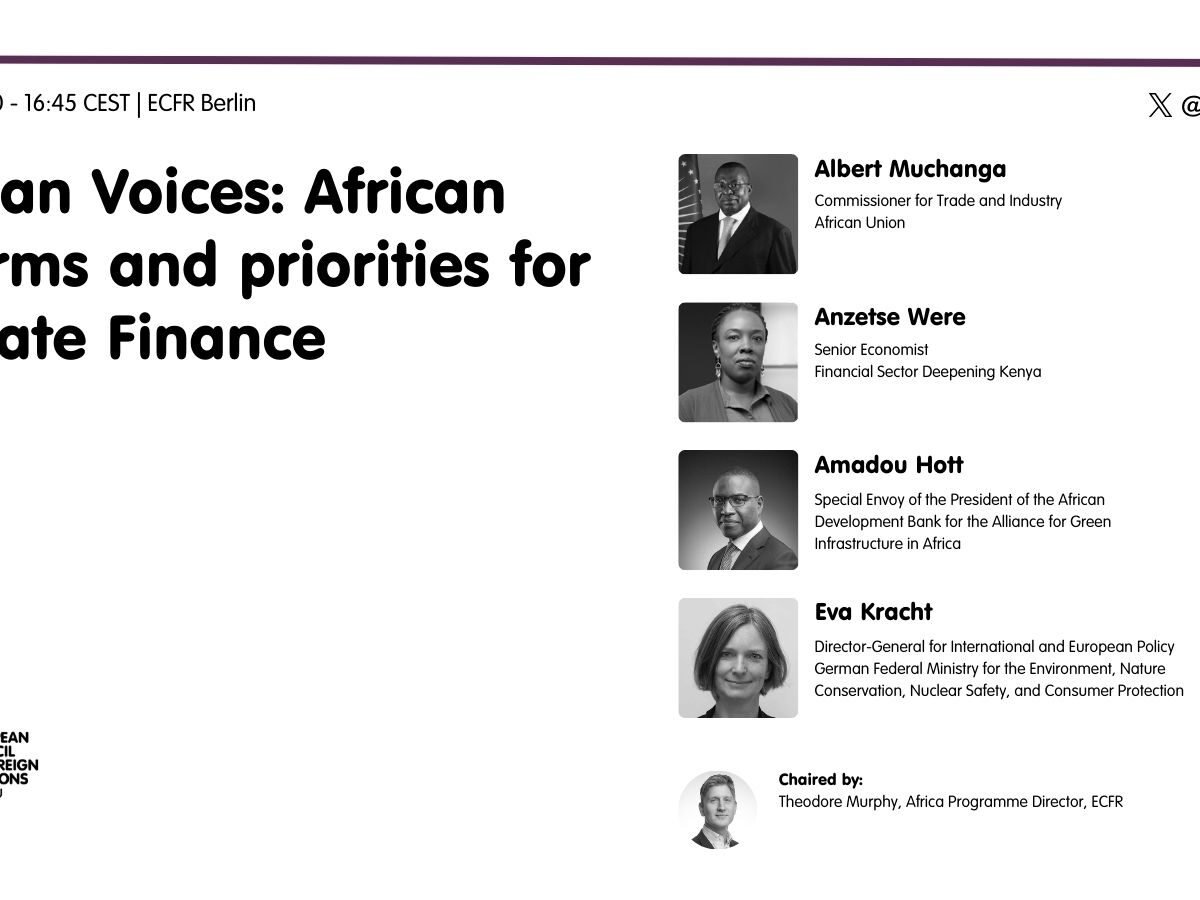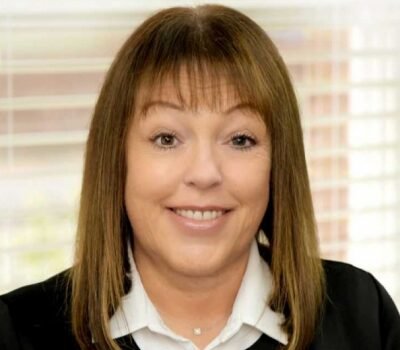Guests
- Albert Muchanga, Commissioner for Trade and Industry, African Union.
- Anzetse Were, Senior Economist, FSD Kenya.
- Amadou Hott, Special Envoy of the President of the African Development Bank for the Alliance for Green Infrastructure in Africa.
- Eva Kracht, Director-General for International and European Policy, German Federal Ministry for the Environment, Nature Conservation, Nuclear Safety, and Consumer Protection.
Chaired by
- Theodore Murphy, Director, Africa Programme, European Council on Foreign Relations
The lack of affordable finance for climate projects in Africa is a key barrier for the continent to reach its adaptation and mitigation goals. It is estimated that African countries will require 2.5 trillion USD in external financing between 2020-2030 to implement their nationally determined contributions under the Paris agreement. Current flows fall far short of this goal, with the financing available estimated to be only 12% of what is needed.
COP29, due to its focus on climate finance, provides an opportunity for European policymakers to make significant advances in this area. Nevertheless, current policy discussions overestimate the amount of resources available and overlook the complexity in implementing significant policies.
European policymakers need to engage with an inconvenient truth: political and financial capital are limited, and policymakers will need to prioritise where these resources should flow. The technically, politically, and legally complicated nature of many policies in climate finance mean that implementing any of the proposed solutions is a difficult task. But, until now, Europeans have spread these resources too thinly over an array of policy proposals. This means that Europeans and other actors have struggled to make breakthroughs in different areas. Fixing the funding gap will require greater focus.
Focusing also means that European and G20 policymakers need to prioritise. But in choosing what to prioritise, Europeans should rely on the expertise of African Voices. Not only are African figures best able to identify the needs of African countries with regards to climate finance, but they are also reservoirs of technical expertise. Institutions such as the African Union and the African Development Bank have led the way in financial innovation, such as the use of hybrid capital.
The event is part of the Berlin Global Solutions Summit. If you would like to join the event in-person please contact the Berlin Global Solutions Summit organisers.

In-person event. Registration required. Register here
Online event. Registration required. Register here





